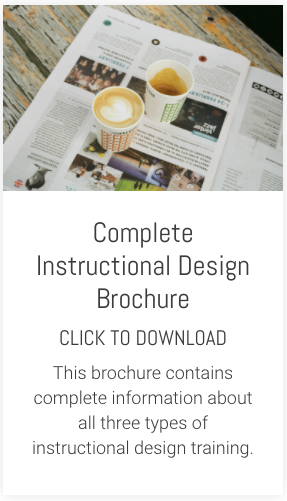This is something that plays out day-in-day-out in businesses everywhere. And something I've written about time and time again. You might think I’m referring to a boardroom battle that spills blood on the corporate carpet. But I’m not.
This is the struggle between the holder of knowledge and skills (usually an SME) and the person or team tasked with turning that knowledge and those skills into a piece of learning.
It’s fairly typical to find that SMEs want to stuff everything they can think of into the course. It's perfectly natural. When you are an expert in a particular area you, understandably, think that you should provide newbies with as much information as possible.
In reality, this is rarely helpful. Learners generally need a well-crafted subset of that knowledge, not the whole lot. And if they do need the whole lot, it will surely need to be carefully broken down into manageable chunks.
With a bit of luck, the learning and development team or person will be able to push back and aim to focus on relevance for learners.
In the best situations, learning and development will have positioned themselves as the true learning experts and have no problems when asserting that they are the ones best placed to make the final decisions about the scope of a given course.
In the very worst cases, learning and development are effectively doormats, pushed around by the knowledge and skills holders, bending to their every whim and desire. They have truly become powerless order takers.
My experience working with a wide range of learning and development folk over a good few years now, is that most people find themselves somewhere in the middle on this issue. Not necessarily having total say but certainly able to push back against the worst excesses of SME overload.
If you typically don't have any control in the power struggle just described, you need to work on getting some of that control back.
If you are relatively new to working with SMEs and the whole analysis and planning piece that needs to go on in the early stages of an instructional design project, check out our on-demand webinar: How to embrace your inner instructional 'architect' for increased design success.







